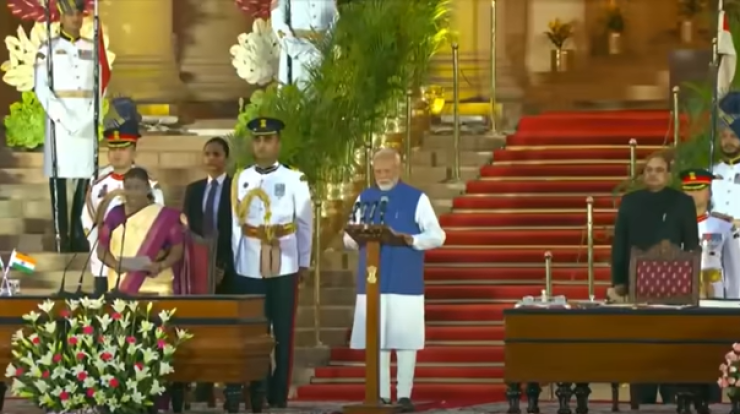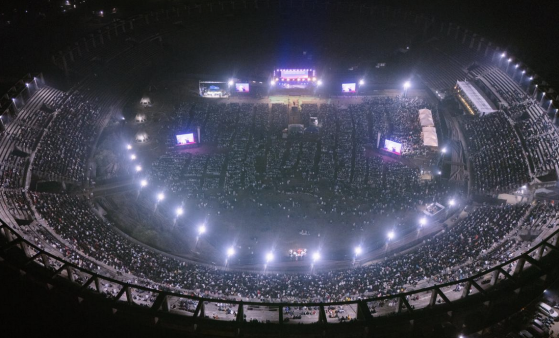
For an unprecedented third consecutive term, Narendra Modi was sworn as India's Prime Minister on June 9, heading a coalition government after his Bharatiya Janata Party (BJP) suffered a shock setback by failing to secure an outright parliamentary majority.
In a grand open-air ceremony at the presidential palace in New Delhi, President Droupadi Murmu administered the oath of office to Modi and his new council of ministers before thousands of guests. This followed the conclusion on June 1 of multi-phase elections in which Modi's BJP-led National Democratic Alliance (NDA) secured 293 seats - significantly fewer than forecast by exit polls.
As regional leaders from Bangladesh, Nepal, Sri Lanka and the Maldives looked on, along with Bollywood celebrities and Indian business tycoons, Mr Modi vowed to "do right to all manner of people without affection or ill-will" and govern with "true faith and allegiance to the constitution."
The incoming council has 72 ministers in total, a careful balancing act to accommodate key allies upholding up the BJP-led coalition. This includes two each from the Janata Dal (United) and Telugu Desam Party allies, and one each from the Janata Dal (Secular), Lok Janshakti Party, Hindustani Awam Morcha, Republican Party of India, Apna Dal (Sonelal), the rebellion Shinde faction of the Shiv Sena and the Rashtriya Lok Dal.
The cabinet also included representations from the minority communities with Pabitra Margherita and George Kurian from the Christian community, Hardeep Puri and Ravneet Bittu from the Sikh community and Kiren Rijiju from the Buddhist community.
While several high-profile ministers like Amit Shah, Rajnath Singh, Nirmala Sitharaman and S Jaishankar have kept their respective core portfolios of Home Affairs, Defence, Finance and External Affairs, other vital roles have been carefully distributed. Former Madhya Pradesh Chief Minister Shivraj Singh Chouhan has been appointed Agriculture Minister.
This protracted swearing-in ceremony underlines the challenges facing Modi in his third term. Despite his personal popularity, the BJP could only muster 240 seats, short of the 272 required for an outright majority. As a result, various regional allies with conflicting interests have gained substantial leverage over the central government.
Analysts warn that this alliance could hamper economic reforms and efforts to rein in fiscal deficits, with state-level coalition partners likely to demand greater centrally-funded development funds for their constituencies. There are also concerns about potential policy paralysis on contentious political and social issues due to the disparate ideological positions within the NDA.
Modi has swiftly struck a more conciliatory tone post-election, stating "unanimity is crucial" to govern effectively. This contrasts the often-divisive rhetoric during campaigning which drew criticism for alleged hate speech targeting India's 200 million Muslim minority community.
Modi, 73, has become the second only Prime Minister in India to have a third term, following the record of Jawaharlal Nehru. This is not small feat in a country of 1.4 billion people. But his reduced mandate and a resurgent opposition will subject his government to a strong parliamentary scrutiny.




